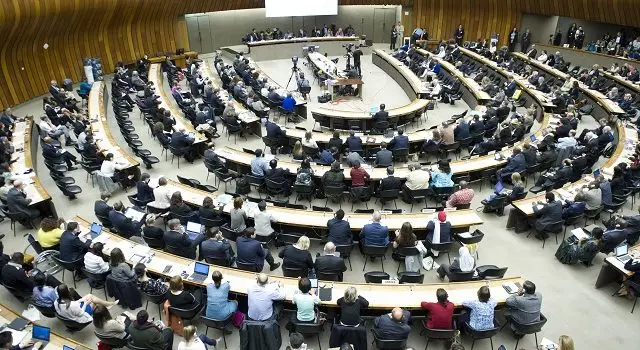This is a statement made at the 76th WHO Regional Committee session for South-East Asia.
The World Heart Federation, together with Movendi International, the NCD Alliance, Bangladesh NCD Alliance, SEAR NCD Alliance, Healthy India Alliance, and Eminence Associates for Social Development, welcomes the move towards implementation of the South-East Asia-HEARTS, or SEAHEARTS, initiative.
Cardiovascular disease is responsible for nearly 4 million deaths in the region each year, though most of these are preventable. Key risk factors including the use of alcohol and tobacco, lack of physical activity, unhealthy diet, and exposure to air pollution, as well as high blood glucose level and high blood pressure, are major causes of CVD deaths. Many people living with CVD are also at risk of complications from other NCDs and multi-morbidities – approximately 245 million people in the South-East Asian region have undiagnosed high blood pressure, and almost 100 million have diabetes, with that number expected to increase 68% by 2045.
The World Heart Federation applauds the ‘Dhaka Call to Action’ adopted by health ministry officials, technical experts, and partners in June of this year to scale up the implementation of SEAHEARTS. The 2025 milestone goals on hypertension and diabetes management, WHO MPOWER tobacco control measures, WHO SHAKE salt-reduction measures, and WHO REPLACE best practices on trans fatty acids are ambitious targets well worth striving for.
WHF also supports further efforts of the SEAHEARTS initiative to tackle CVD, NCDs, and their risk factors, including promoting simplified treatment protocols for hypertension and diabetes, ensuring continuity of care and supply of medicines, and strengthening digital information systems, including through the collection of disaggregated and timely data, for more comprehensive patient health management. We add our voice to the initiative’s calls for expansion of tobacco control measures, stronger regulatory action against trans fatty acids, loftier targets for curbing salt intake, and the restriction of marketing food and beverages high in salt, sugar, and fats to children. We would further encourage Member States to develop and employ context-specific national physical activity action plans, as recommended in our latest policy brief, and implement the WHO SAFER package of interventions on alcohol control.
We stand ready to support you in these endeavors and look forward to working hand-in-hard to combat risk factors and reduce CVD across the region. Thank you.


